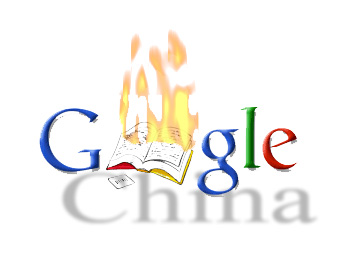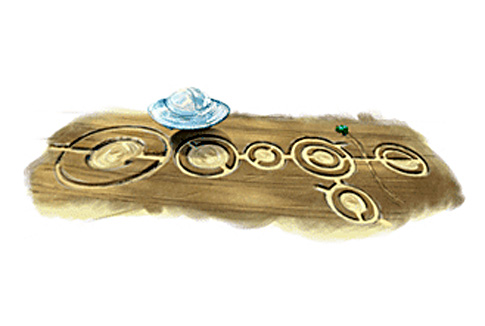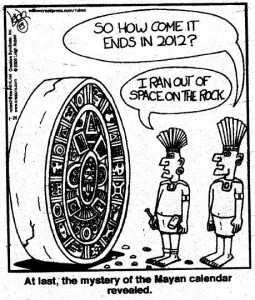In what appears to be an effort of Geopolitical muscle flexing, Google has announced on its blog its intention to cease its activities in China, or, to put it in their own words, to review Google’s business operations in China. Google claims to have evidence of several attempts of the Chinese Government to hack Gmail accounts of human rights activists, as well as several other violations of privacy and censorship actions, all leading up to Google’s decision to reconsider their involvement in the Chinese market.
While Internet censorship in China has been well documented since 2006 (see this image for a comparison of Google.com vs Google.cn results for “tianaman”) and I have nothing against Google playing the moral crusader it’s not, I do, however, have a few definitive issue with the context of this decision…
1. The Hero Of The Story Was Actually An Accomplice.
 That’s right, the Chinese Government enforces hardcore censorship, strictly controls the access to information and keeps a tab on the country’s Internet users. But here’s the catch: not only was Google aware of this policy, but it agreed to it and molded its business model to suit China’s regulations, when it first established its offices in China. And Google doesn’t even make a secret of it, stating it bluntly in the official statement: We launched Google.cn in January 2006 in the belief that the benefits of increased access to information for people in China and a more open Internet outweighed our discomfort in agreeing to censor some results. So Google actually agreed to abide by the unique moral standards of the Chinese Government and now they admits it, like it were a minor concession. Which brings us to point two of my discourse…
That’s right, the Chinese Government enforces hardcore censorship, strictly controls the access to information and keeps a tab on the country’s Internet users. But here’s the catch: not only was Google aware of this policy, but it agreed to it and molded its business model to suit China’s regulations, when it first established its offices in China. And Google doesn’t even make a secret of it, stating it bluntly in the official statement: We launched Google.cn in January 2006 in the belief that the benefits of increased access to information for people in China and a more open Internet outweighed our discomfort in agreeing to censor some results. So Google actually agreed to abide by the unique moral standards of the Chinese Government and now they admits it, like it were a minor concession. Which brings us to point two of my discourse…
2. The Dr. Mengele Arguement
 Let’s take a closer look at that line from the official statement, shall we?
Let’s take a closer look at that line from the official statement, shall we?
The belief that the benefits of increased access to information for people in China and a more open Internet outweighed our discomfort in agreeing to censor some results.
All right, fair enough… Google’s executive decision to go ahead with the launch of Google.cn, despite the Government censorship stands to reason, being for the benefit of the access to information, right? Wrong! Consider, if you will, the implications and the undertone of that quote. Stripping the text down to its essence and interpreting it beyond Google’s charming arguement of information liberalization, we’re basically given to understand that Google contributes to the Government’s efforts to limit people’s access to information. No, I’m sorry, I do not believe that, despite “some minor censorship efforts”, the people were still the beneficiaries. Google’s statement is underplaying the role of censorship, to cover its own arse. The underlining tone is ridiculous in itself; there is no such thing as liberal censorship. Trying to downplay Google’s contribution to Chinese censorship, implying the “greater good” is like trying to excuse Dr. Mengele of torturing Jews, by invoking his contribution to the field of Medicine.
3. Why Google’s Company Philosophy Is Just Corporate BS
 Like we would expect from Google, it aggrandizes itself as the Messiah of the Internet. And on the seventh day, Google layed forth ten laws it holds sacred. And this Decalogue can be read on the Google Corporate Information Page. Needless to say, these arguements are not at all watertight. In fact, Google violates most of them on a routine basis. But, for the sake of arguement, let’s see how Google’s Chinese exploits measure up to some of its own guiding principles…
Like we would expect from Google, it aggrandizes itself as the Messiah of the Internet. And on the seventh day, Google layed forth ten laws it holds sacred. And this Decalogue can be read on the Google Corporate Information Page. Needless to say, these arguements are not at all watertight. In fact, Google violates most of them on a routine basis. But, for the sake of arguement, let’s see how Google’s Chinese exploits measure up to some of its own guiding principles…
Now the first line of these commandments is a quote by the prophet Saint Larry Page, stating the perfect Search Engine would understand exactly what you mean and give you back exactly what you want. All right, so basically, if I were, let’s say, Chinese and I were to google, I don’t know, tianaman square (or 天安門廣場 in Traditional Chinese), in the interest of information, the SERPS would provide me with data about the 1989 protest and massacre, right? Well, not exactly, but it would give me bright propaganda images with the great Tianaman monument, communist flags and proud citizens. Again, if I were to google Chinese communism (or 中國共產主義 in Traditional Chinese), I would get images of human rights protesters, parades and people shot in the streets, similar to the Google.com results, right? Well, actually no, I would get 10 pages worth of propaganda posters, artistic depictions of socialist folk heroes and so forth on Google.cn. All right, yeah, Google definitely understands me and delivers exactly what I want. I suddenly feel the urge to get a below-minimum-wage job at a sweatshop. Thanks, Google!
Commandment 1: Focus on the user and all else will follow. So, basically, if you’re a simple Chinese citizen, with the Government keeping an eye on your everyday life, you are being served Government-controlled information. In this respect, Google lives up to its promise, for sure.
Commandment 4: Democracy on the web works. Right, umm… moving on…
Commandment 6: You can make money without being evil. All right, err… moving on… guys, you’re making it hard on yourselves…
Commandment 7: There’s always more information out there. Right, you’re just not entitled to it, because you live in a communist country, so, there you go. Sucks to be you.
4. The Great Asian Conspiracy
 Everybody likes a good conspiracy theory from time to time. Hell, even you do, admit it! The problem is, this time I don’t have enough facts or the necessary patience to actually devise a clever world domination plot for the Google Chinese Crisis, so I am only going to list some weird coincidences and leave it up to my readers to make some sense of it all in the comments section…
Everybody likes a good conspiracy theory from time to time. Hell, even you do, admit it! The problem is, this time I don’t have enough facts or the necessary patience to actually devise a clever world domination plot for the Google Chinese Crisis, so I am only going to list some weird coincidences and leave it up to my readers to make some sense of it all in the comments section…
First of all, the Google Chinese Crisis comes one day after Baidu.cn was attacked by hackers. So? Big deal! Well, Baidu.cn is Google’s main competitor. So much in fact, that it hogs around 75% of the Chinese Search market, being one of the last real competitors for Big Brother Google in the world today. Now I’m not trying to imply Google actually commissioned the attack on Baidu, I’m just guessing that nobody at Googleplex actually wept for Baidu. Furthermore, ChinaDaily notes the attack was not carried out against the Baidu server, but the US – based domain name register. Naturally, any fingers pointing at Google would be preposterous, as the attack has already been claimed by some punks from the “Iranian Cyber Army“… ah-hah! Now I get it… uhhh…
All right, the hacking attack on Baidu and Google’s sudden decision to renegotiate its terms with the Chinese Government coincided. Granted. Besides, some minor-league email hacking attempt is a totally believable excuse to cease all operations in the top Internet country of the world. But Twitter has been buzzing lately with similar, albeit minor coincidences… first, someone noted the website Baidu.tw redirecting to Google Taiwan and Twitter has been flooded with comments on this issue. Granted, Google’s implication is highly unlikely, as a simple Whois query will point to the owner of the website, whose email address is registered to some obscure Chinese platform, http://21cn.com. Subsequently, Yahoo! Japan president, Masahiro Inoue said Google is nothing special, commenting on several services offered by the Big G.
I will admit, the above information does in no way justify a conspiracy theory and suspecting Google’s implication would be sheer speculation. And the goal of this article isn’t to blame Google for world hunger and WWII (although I might consider that for a future post). I am merely pointing out that “things are happening”. The Search market isn’t just some tiny business in the back pocket of a geek toy, called the Internet. It has grown to huge proportions, so much that today we are talking about the geopolitical implications of a Search Engine’s actions, as economic leaders anxiously await the results of a Search Engine’s negotiations with the Chinese Government. Just let this thought sink in for a moment, then meditate, if you will, on how far the Search business has evolved over the last decade. To sum it all up, the times, they are a-changin’.

![[Ask]](https://seo-wolf.com/wp-content/plugins/bookmarkify/ask.png)
![[del.icio.us]](https://seo-wolf.com/wp-content/plugins/bookmarkify/delicious.png)
![[Digg]](https://seo-wolf.com/wp-content/plugins/bookmarkify/digg.png)
![[Facebook]](https://seo-wolf.com/wp-content/plugins/bookmarkify/facebook.png)
![[Google]](https://seo-wolf.com/wp-content/plugins/bookmarkify/google.png)
![[LinkedIn]](https://seo-wolf.com/wp-content/plugins/bookmarkify/linkedin.png)
![[Mister Wong]](https://seo-wolf.com/wp-content/plugins/bookmarkify/misterwong.png)
![[Reddit]](https://seo-wolf.com/wp-content/plugins/bookmarkify/reddit.png)
![[Squidoo]](https://seo-wolf.com/wp-content/plugins/bookmarkify/squidoo.png)
![[StumbleUpon]](https://seo-wolf.com/wp-content/plugins/bookmarkify/stumbleupon.png)
![[Twitter]](https://seo-wolf.com/wp-content/plugins/bookmarkify/twitter.png)
![[Yahoo!]](https://seo-wolf.com/wp-content/plugins/bookmarkify/yahoo.png)
![[Email]](https://seo-wolf.com/wp-content/plugins/bookmarkify/email.png)


Google’s War On Blog Comment Spam
I recently heard from a bird (actually, it was a beard, an Andy Beard, to be precise) that Google has introduced a penalty for blog comment spamming. As it usually happens, Google won’t admit to being a late bloomer in any issue regarding web usability. Accordingly, the tone of the original post (published by Adel Saoud and Paolo Petrolini on the Google Webmaster Central Blog) implied that Google already applied ranking sanctions for comment spamming and that this message is just an informative update. Truth of the matter is, Google is probably just starting to take actions against abusive links posted in the comments section of blogs.
What does it all mean?
Long story, short, your blog relevancy is affected by the links posted in your post comments and if you do not manage to tidy up that particular section, you will suffer TrustRank penalties and ultimately drop in the rankings. I have to agree with Google on this, it makes sense, up to a point. But first, let’s look at the official arguements, quoted straight from the horse’s mouth (or, in this case, the GWC):
True enough. A blog’s comments section is a space designed for on-topic interaction and dispute. A comment box stuffed with irrelevant links not only ruins the user experience, it also downgrades the actual article to which it comments.
This might just be a bluff on Google’s part, in an effort to ward off any potential spammers, by reaffirming its position as the web’s ultimate relevancy arbiter. In truth, Google probably has little control over the quality of links posted within the comment section of a blog and the comment spam detection system is probably just in its infancy state.
Here we may have actually stumbled upon the real stake of this message. Introducing a blog comment filter in the ranking algorithm might just be another one of Google’s efforts to limit the SEO bad boys’ arsenal.
What can we do about it?
Most blogs feature intelligent spam filtering solutions (speaking strictly from WordPress experience), but there still isn’t a 100% guaranteed method of absterge comment spammers from your blog permanently. In the post’s conclusion, Saoud and Petrolini were kind enough to offer some suggestions to zealous webmasters who want to limit spammers’ access to their system and, consequently protect their precious rankings:
Fair enough. Providing minimum information (e.g. a nickname and an email address) shouldn’t be too much of a hassle for your potential commentators. However, this method has revealed its vulnerabilities, with the advent of Black Hat automation software.
Being an adversary of the dreaded CAPTCHA, I can not applaud this suggestion, especially since it is just as vulnerable to the above mentioned threat. So why stress your visitors with a cacographic abomination, when you can just as effectively ask him/her to provide minimum identification?
There are still people who disable comment moderation?
I usually support adding the “nofollow” attribute to outgoing links of any type, but this can prove to be a problem, especially if you want to monetize your blog (hint: affiliate marketing). You can sacrifice a lot of link love this way and it is very unlikely that hardcore spam freaks will be discouraged by the “nofollow” attribute, assuming they know what that even is.
No. No. No.
Again, risky territory, especially for those webmasters who try to cash in on their ranking positions for certain keywords (hint: affiliate marketing, once again)
My own two cents
Although the obvious benefits of waging war against comment spamming can not be denied, this new take does raise some questions. Like where does Google draw the line between a spammer and a harmless marketer, trying to add valuable input to a post and to promote his own website in the process? Or where are the battle lines drawn? Will quality matter or will the deciding factor be quantity and chance, in the end? And last, but by no means least, there is something to be discussed about the practical application of the comment spam filtering. Needless to say, Google’s warning targets only webmasters who host comment spams on their blogs and not the spammers themselves. This makes sense, since it would be damn near impossible to chastise a website for link spam on one blog, if it runs a completely legit link building strategy the rest of the time. In addition, Andy Beard makes an interesting assertion at the end of his report of the GWC announcement, asking what if a competitor was trying to sabotage your ranking by spamming your blog’s comments section?
Whether the comment spam penalty will add value to the user’s experience online or not, will be determined by time and the adaptability of the community. The idea in itself starts out as a good one. But, then again, so did communism…
27 Nov 2009
Tags: blog comment, comment spam, Google, google algorithm, google ranking, ranking factors, spam
Posted in Google | 4 Comments »